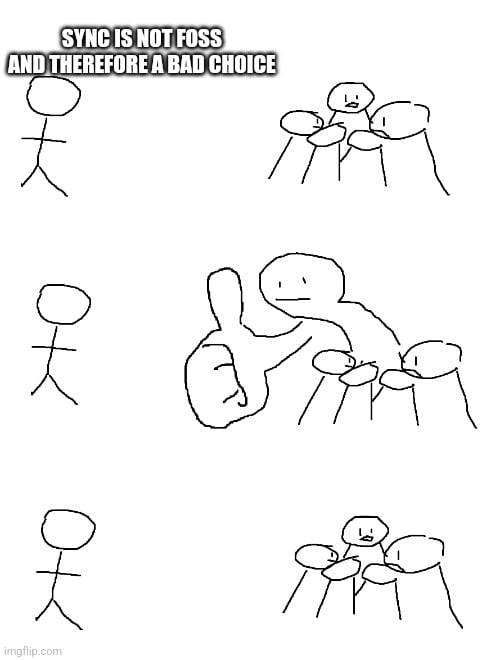this post was submitted on 03 Aug 2023
1431 points (85.5% liked)
Memes
52467 readers
218 users here now
Rules:
- Be civil and nice.
- Try not to excessively repost, as a rule of thumb, wait at least 2 months to do it if you have to.
founded 6 years ago
MODERATORS
you are viewing a single comment's thread
view the rest of the comments
view the rest of the comments

The three stages of a long-term FOSS user:
How the fuck do I do anything? I'm so lost.
I've somewhat mastered how to use it and became a power user. I'm happy about this, I've developed a sense of superiority over those who don't use it, and will now promote it constantly to others like a goddamn cult. My SO has left me and my family has disowned me, but I don't care, they are too ignorant to be as enlightened as I am.
(A decade or two later) I don't even give a fuck anymore what somebody uses, this still works for me, and what works for you, works for you. Let's just all coexist. OS and app development models don't mean shit, common standards and protocols between them do. As long as I, a Linux user, can email a PNG to a Mac user and they can open it, we're good.
It's been like this since the mid-90s. Most of the people who are being annoying about it are in stage 2.
I have the (perhaps irrational) fear that sitting too comfortably in stage 3 leads to the kind of complacency that allows things like Web Environment Integrity to escape the "shower thought" phase.
On principle I believe that people shouldn't feel forced to restrict themselves to FOSS - I use Steam and barely ever pirate games ~~(ignore my Lemmy instance I guess)~~; however, I think people should put some effort in understanding the consequences of always choosing the path of least resistance, at the very least.
That's not an issue with FOSS vs proprietary, but with large corporations needing to be broken up.
FOSS isn't immune to that, its a known thing that large corporations can use their dominance of a market segment to infiltrate even totally open standards and make demands with the threat of leaving the standard (and therefore resigning it to becoming irrelevant).
This is especially true of web standards. Chromium is FOSS, yet Google can use its absolute dominance in the market place to force through changes to things like HTTP standards (also FOSS). My understanding is Microsoft and Google both have strong-armed stuff into C++ in the past as well